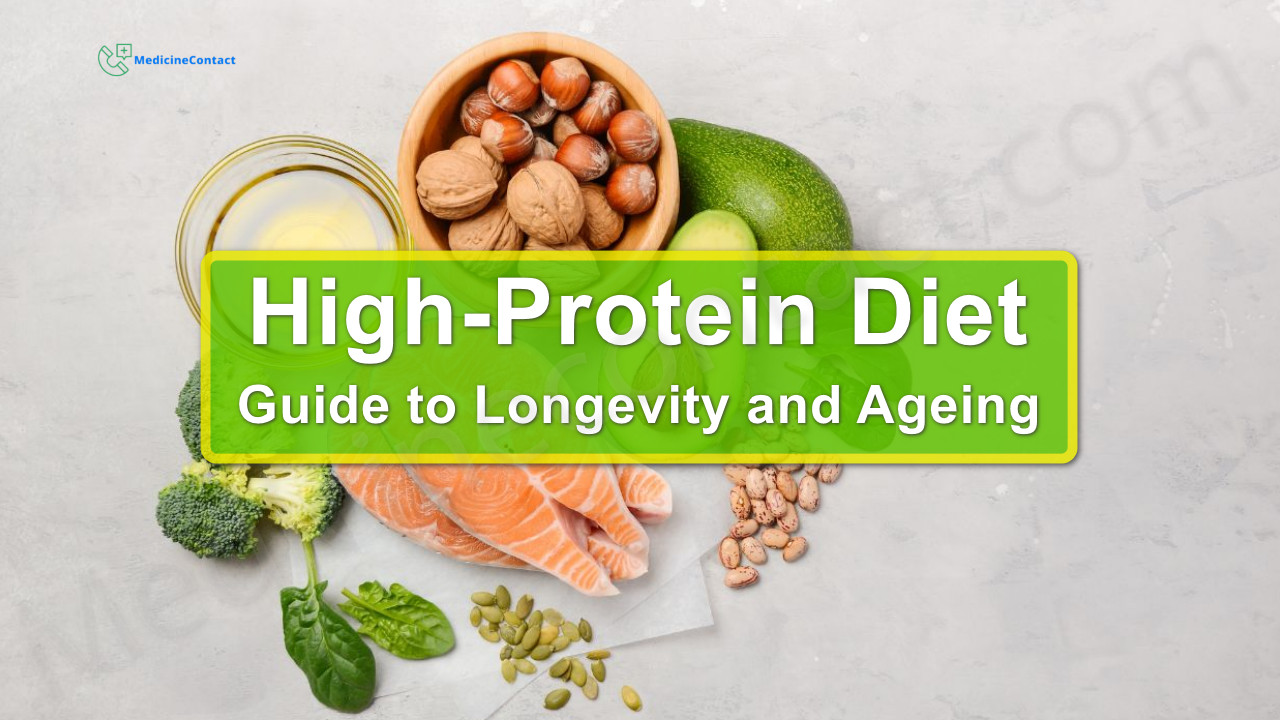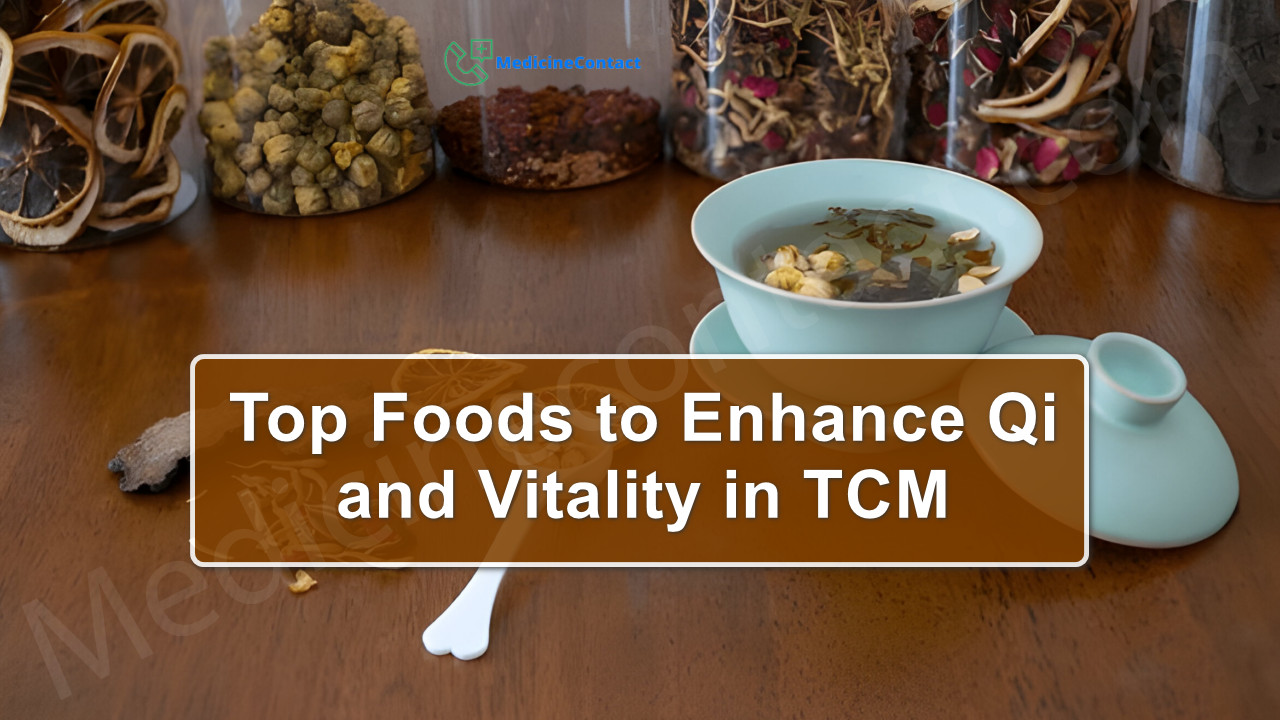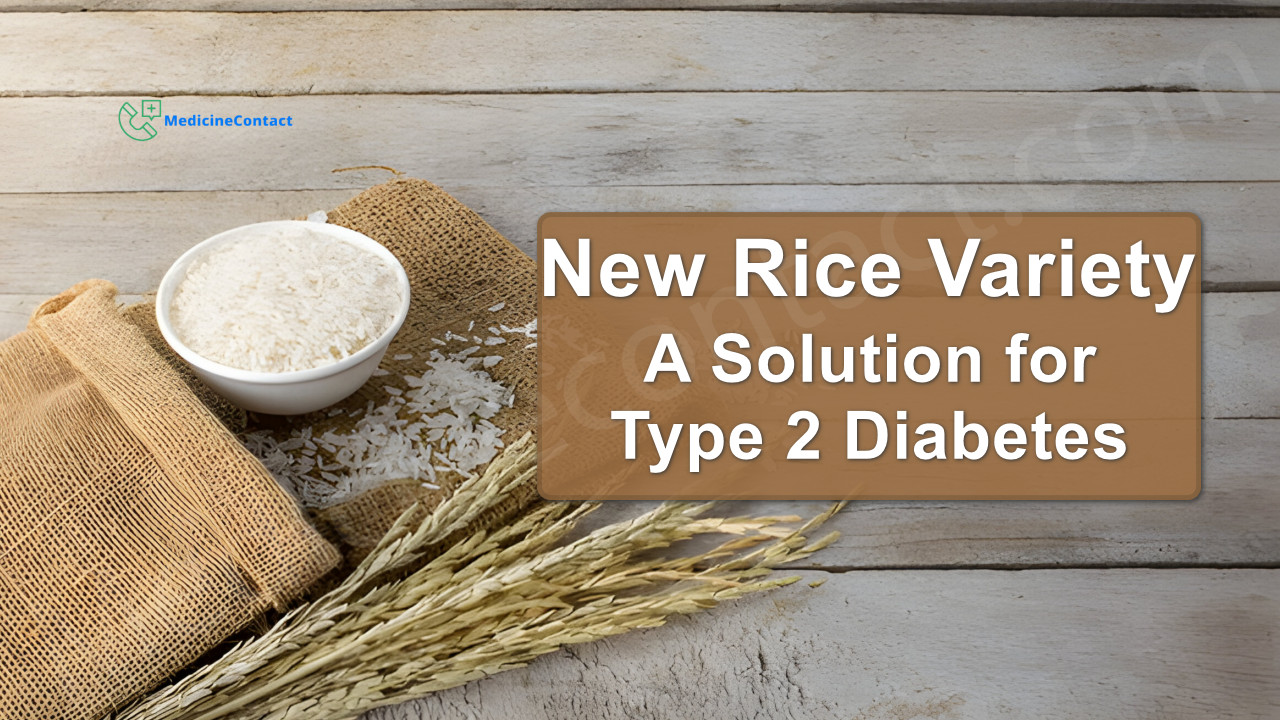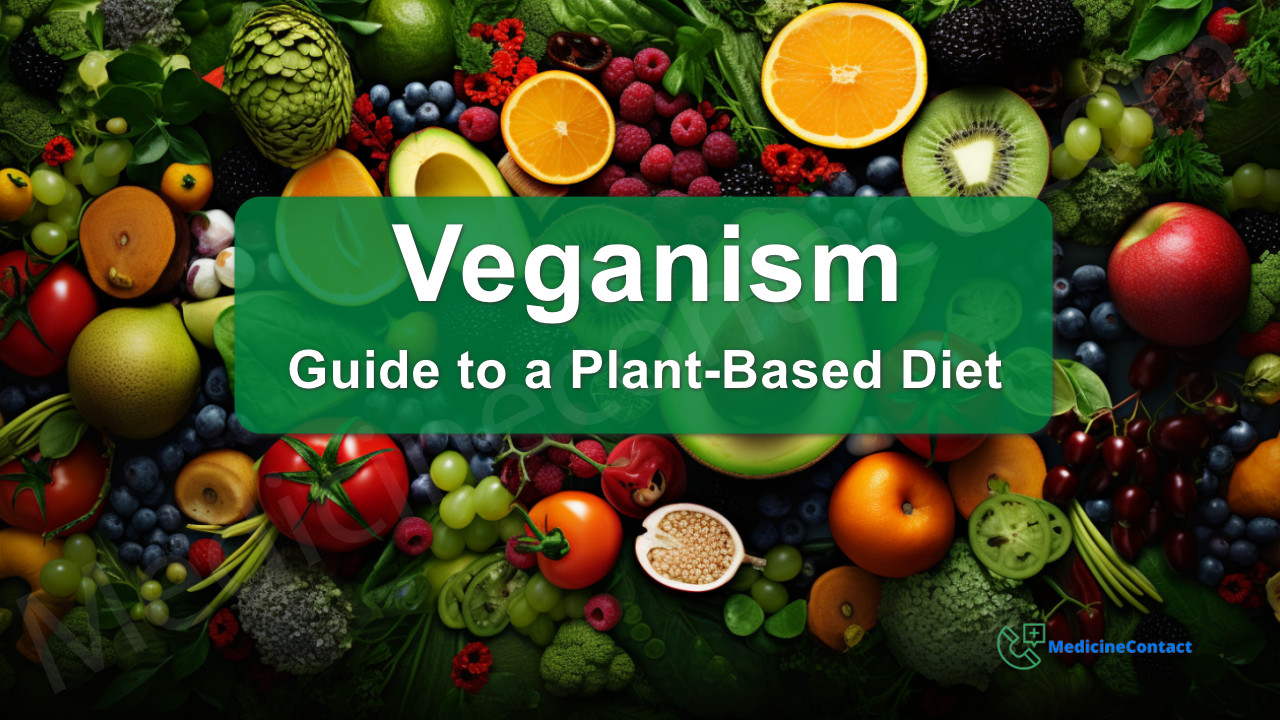
Introduction
High-protein diets have become popular for their potential benefits in managing weight and maintaining muscle, especially among older adults. As people get older, it's crucial to preserve muscle mass and strength to avoid frailty and related health problems. Protein is essential in this process, making it a vital nutrient for living longer and aging well.
A high-protein diet involves consuming more foods rich in protein from both animal and plant sources. Animal-based proteins are often emphasized because they contain all the essential amino acids needed for building muscles. This article explores the role of protein in aging, focusing on animal-based sources to help readers learn how to include protein in their diets for better health as they grow older.
Key takeaway: By understanding how protein affects aging, this guide aims to offer valuable insights into how a high-protein diet can promote longevity and healthy aging.
Understanding Protein Sources
What is Protein and Why is it Important?
Protein is a macronutrient made up of amino acids, which are the building blocks of tissues, muscles, enzymes, and hormones in the body. It plays a crucial role in various physiological processes such as:
- Repairing and growing muscles
- Supporting the immune system
- Producing hormones
- Facilitating enzyme activity
Getting enough protein is essential for staying healthy, especially as we get older.
Comparing Animal-Based and Plant-Based Proteins
Animal-Based Proteins
Animal-based proteins are considered high-quality proteins because they contain all nine essential amino acids required by the human body. These complete proteins include:
- Meat (beef, pork, poultry)
- Dairy products (milk, cheese, yogurt)
- Eggs
Benefits:
- Complete Amino Acid Profile: Provides all essential amino acids.
- High Bioavailability: Easily absorbed and utilized by the body.
- Rich in Micronutrients: Often contain important vitamins and minerals like B12, iron, and zinc.
Challenges:
- Environmental Impact: Higher carbon footprint compared to plant-based sources.
- Health Concerns: Excessive consumption linked to cardiovascular diseases and certain cancers.
Plant-Based Proteins
Plant-based proteins come from sources such as:
- Legumes (beans, lentils)
- Nuts and seeds
- Whole grains (quinoa, barley)
- Soy products (tofu, tempeh)
Benefits:
- Lower Environmental Impact: More sustainable with a lower carbon footprint.
- Health Benefits: Associated with reduced risks of chronic diseases like heart disease and diabetes.
Challenges:
- Incomplete Amino Acid Profile: Most plant proteins lack one or more essential amino acids. Combining different plant sources can provide a complete profile.
- Lower Bioavailability: Less easily absorbed by the body compared to animal proteins.
A Closer Look at Animal Source Foods
Meat
Meat is a primary source of high-quality protein. It offers:
- Beef: Rich in iron and vitamin B12.
- Poultry: Lower in fat compared to red meat; provides selenium and B vitamins.
- Pork: Good source of thiamine and zinc.
Dairy Products
Dairy products not only supply high-quality protein but also deliver calcium for bone health.
- Milk: Contains casein and whey proteins; fortified with vitamin D.
- Cheese: High in calcium and phosphorus; varies in fat content.
- Yogurt: Contains probiotics that support gut health alongside its protein content.
Eggs
Eggs are versatile foods packed with nutrients.
- Each egg provides about 6 grams of high-quality protein.
- Rich in choline, which is vital for brain health.
Understanding these sources helps tailor dietary choices that support muscle maintenance and overall health during aging.
The Role of Protein in Aging and Muscle Health
How Protein Intake Affects Muscle Mass Retention and Strength
Protein is essential for maintaining muscle mass and preventing frailty in older adults. As people get older, they often experience sarcopenia—a gradual loss of muscle mass and strength. This decline can lead to a higher risk of falls, fractures, and overall frailty. Getting enough protein can help counteract these effects by supporting muscle repair and growth.
Research shows that older adults don't respond as strongly to protein intake as younger individuals do. This means they need more protein to achieve the same level of muscle repair and growth. So, it's crucial for older adults to make sure they're getting enough protein every day to fight against age-related muscle loss.
Recommended Protein Intake for Older Adults
Dietary guidelines for older adults suggest higher protein needs than the general population to support healthy aging. While the Recommended Dietary Allowance (RDA) for protein is 0.8 grams per kilogram of body weight for adults, experts recommend an increased intake for those aged 65 and older:
- 1.0 to 1.2 grams per kilogram of body weight for healthy older adults.
- 1.2 to 1.5 grams per kilogram of body weight during periods of illness or when dealing with chronic conditions.
For example, an older adult weighing 70 kilograms should aim for approximately 70 to 84 grams of protein daily under normal circumstances, with higher amounts required if they are unwell or recovering from surgery.
Including high-quality animal-based proteins like lean meats, dairy products, and eggs can effectively meet these requirements because they contain all essential amino acids. Balancing these with plant-based sources can offer additional health benefits while diversifying nutrient intake.
By making sure they consume enough protein regularly, older adults can better maintain their muscle mass, improve their strength, and lower the risk of falls and frailty—important factors in living longer and having a better quality of life as they age.
Health Implications of High-Protein Diets for Older Adults
Potential Benefits
High-protein diets can offer significant advantages for older adults, particularly in the realms of weight management and blood sugar control. These diets are often associated with:
- Weight Loss: Increased protein intake can enhance fullness, reducing overall calorie consumption. This helps in managing body weight, which is crucial for reducing chronic diseases such as diabetes and heart conditions.
- Blood Sugar Control: Proteins have a minimal impact on blood sugar levels. Consequently, a high-protein diet can help stabilize glucose levels, making it beneficial for individuals with type 2 diabetes or those at risk of developing this condition.
Potential Risks
Despite the benefits, excessive consumption of animal-based proteins poses risks:
- Kidney Function Decline: High intake of animal protein has been linked to adverse effects on kidney health. Conditions like high blood pressure within the kidneys and chronic kidney disease (CKD) may arise from prolonged excessive protein consumption.
Note: It's essential to balance protein sources to mitigate potential health risks.
Ongoing Research on Kidney Health
Research into the long-term effects of high-protein diets on kidney function continues to yield mixed results. While some studies suggest no significant adverse effects in healthy individuals, others highlight potential risks. The key areas of focus include:
- Chronic Kidney Disease (CKD): Investigations into whether high-protein diets worsen CKD symptoms or contribute to its onset remain ongoing.
- Protein Source Variability: Differentiating between the impacts of animal-based versus plant-based proteins on kidney health is crucial for forming dietary guidelines.
Balanced Approach
A balanced diet that integrates both animal and plant proteins can capitalize on the benefits while minimizing risks. Options like fish, which is high in protein and low in fat, as well as incorporating high-protein fruits such as avocados in moderation, contribute to a diversified nutrient profile.
For those seeking additional protein sources, high-protein supplements provide an alternative that supports muscle health without overburdening the kidneys.
By understanding these dynamics, older adults can make informed dietary choices that promote longevity and overall well-being.
Practical Approaches to Following a High-Protein Diet as You Age
Incorporating More Protein into Daily Meals
Ensuring adequate protein intake is essential for older adults aiming to maintain muscle mass and overall health. Here are some practical tips:
- High-Protein Chips: These snacks offer a convenient way to boost protein intake without the need for meal prep. Look for options that provide at least 10 grams of protein per serving.
- Animal-Based Protein Powders: Whey and casein protein powders are excellent supplements that can be easily added to smoothies, oatmeal, or baked goods. They provide a high-quality protein source with a complete amino acid profile.
- High-Protein Low-Fat Foods: Incorporate lean meats like chicken breast, turkey, and fish into your meals. These options offer high protein content with minimal fat, supporting muscle health without excessive calorie intake.
- Cheese High in Protein: Opt for cheeses such as cottage cheese, which offers around 28 grams of protein per cup, or Parmesan, which packs about 10 grams per ounce. These can be added to salads, sandwiches, or consumed as snacks.
Balancing Protein Sources
While animal-based proteins are highly effective for muscle synthesis, it’s important to include plant-based sources for a balanced diet. Here are some considerations:
- Are Oats High in Protein?: While not exceptionally high in protein, oats provide around 5 grams per serving and can be enhanced with additions like Greek yogurt or nuts.
- Variety and Balance: Combining different sources of protein—both animal and plant-based—ensures a diverse intake of nutrients. Some plant-based proteins include legumes, tofu, quinoa, and nuts.
Importance of Meal Timing
Distributing protein intake evenly throughout the day is crucial for optimizing muscle protein synthesis. Here's how you can manage this:
- Breakfast: Many older adults tend to skimp on breakfast when it comes to protein. Start the day with options like eggs, Greek yogurt, or a smoothie enriched with high-protein supplements.
- Lunch: Include lean meats or fish in salads and sandwiches. Adding beans or lentils can also enhance the protein content.
- Dinner: Focus on balanced meals that combine lean proteins with vegetables and whole grains.
- Snacks: Consider high-protein chips, cheese sticks, or nuts between meals to maintain steady protein levels.
Maximizing Muscle Health
To make the most out of your high-protein diet:
"Aim for an intake of 1.0 to 1.2 grams of protein per kilogram of body weight daily."
This recommendation helps support muscle health and overall longevity as you age.
Adopting these practical approaches ensures not only an adequate but also a well-distributed intake of protein throughout the day. This strategy aids in maximizing muscle synthesis and supports healthy aging effectively.
Addressing Concerns About High-Protein Diets for Longevity
Common Myths and Misconceptions
High-protein diets are often surrounded by myths and misconceptions, which can lead to unnecessary concerns. For instance, weight loss common myths often include the belief that high-protein diets are unhealthy.
1. Constipation from High-Protein Diet
Many people worry about constipation when increasing their protein intake. While it’s true that a high-protein diet can lead to constipation, this is typically due to a lack of dietary fiber rather than the protein itself.
This concern is valid especially when considering low-fiber foods which can exacerbate the issue. Ensuring adequate fiber intake from fruits, vegetables, and whole grains can mitigate this issue. Pairing high-protein sources with fibrous foods helps maintain digestive health.
2. Excessive Protein Consumption
Another common concern is the potential harm of consuming too much protein. While excessive intake—especially from animal sources—can stress the kidneys over time, moderate increases within recommended limits generally pose no risk to healthy individuals.
Older adults should focus on balanced protein consumption, prioritizing quality over quantity. It's important to understand what constitutes a high-protein diet and how to manage it effectively.
Addressing Specific Concerns
- Does high protein cause constipation? Not inherently. The issue usually stems from low fiber intake rather than protein itself.
- Is milk high in protein? Yes, milk is a good source of protein and provides multiple essential nutrients beneficial for aging populations.
- Can a high-protein diet cause constipation? Again, if not balanced with adequate fiber, it might. Incorporating diverse food groups ensures a healthy digestive system.
By debunking these myths and emphasizing a balanced approach, individuals can confidently integrate high-protein diets into their routines for optimal health benefits as they age. Additionally, understanding the scientific perspective on protein consumption can further alleviate concerns and promote healthier lifestyle choices.
Conclusion: Embracing a Balanced Approach to Protein Intake for Healthy Aging
A balanced approach to protein intake is crucial for promoting longevity and maintaining health as we age. By focusing on both the quality and quantity of protein, individuals can support muscle mass retention, improve metabolic health, and potentially reduce the risk of age-related diseases.
Key considerations include:
- Quality of Protein: Prioritize high-quality sources such as lean meats, dairy, and eggs while also incorporating plant-based proteins to achieve a well-rounded amino acid profile.
- Quantity of Protein: Aim for an intake that supports muscle health, particularly for older adults who may benefit from 1.0 to 1.2 grams per kilogram of body weight daily.
Encouragement for readers:
- Think about the source of your protein, balancing animal and plant-based options.
- Distribute protein intake evenly across meals to maximize muscle protein synthesis.
By adopting these practices, you can harness the benefits of a high-protein diet while supporting overall well-being and longevity. For more detailed guidance on dietary choices that promote healthy aging, visit Diet & Nutrition.
Promote health through informed choices—embrace a balanced approach to your protein intake.
FAQs (Frequently Asked Questions)
What is a high-protein diet and how does it relate to longevity?
A high-protein diet emphasizes the consumption of protein-rich foods, particularly from animal sources. This article explores how such diets may impact longevity and healthy aging by supporting muscle mass retention and overall health as individuals age.
What are the differences between animal-based and plant-based protein sources?
Animal-based proteins, such as meat, dairy, and eggs, are considered high-quality proteins that provide all essential amino acids. In contrast, plant-based proteins may lack one or more essential amino acids but can still be beneficial when consumed in variety. Each type has its own set of benefits and challenges.
How does protein intake affect muscle health in older adults?
Adequate protein intake is crucial for maintaining muscle mass and strength in aging populations. It helps prevent frailty and supports overall physical function. Older adults are often recommended to increase their protein intake to support healthy aging.
What are the potential risks associated with high-protein diets for older adults?
While high-protein diets can offer benefits like weight loss and improved glycemic control, there are potential risks, including kidney function decline and other chronic diseases. Ongoing research is examining the long-term effects of these diets on kidney health.
What practical tips can help older adults incorporate more protein into their diets?
Older adults can enhance their protein intake by including options like high-protein snacks (e.g., chips), animal-based protein powders, and ensuring a balance of protein throughout the day to optimize muscle protein synthesis.
Are there any common misconceptions about high-protein diets?
Yes, common myths include concerns that high-protein diets may cause constipation or that excessive protein consumption is universally harmful. It's important to understand that while some individuals may experience digestive issues, many can enjoy a balanced approach to protein without adverse effects.
Disclaimer: This article is for informational purposes only and does not constitute medical advice. Always consult with a healthcare professional before starting any new treatment regimen.




